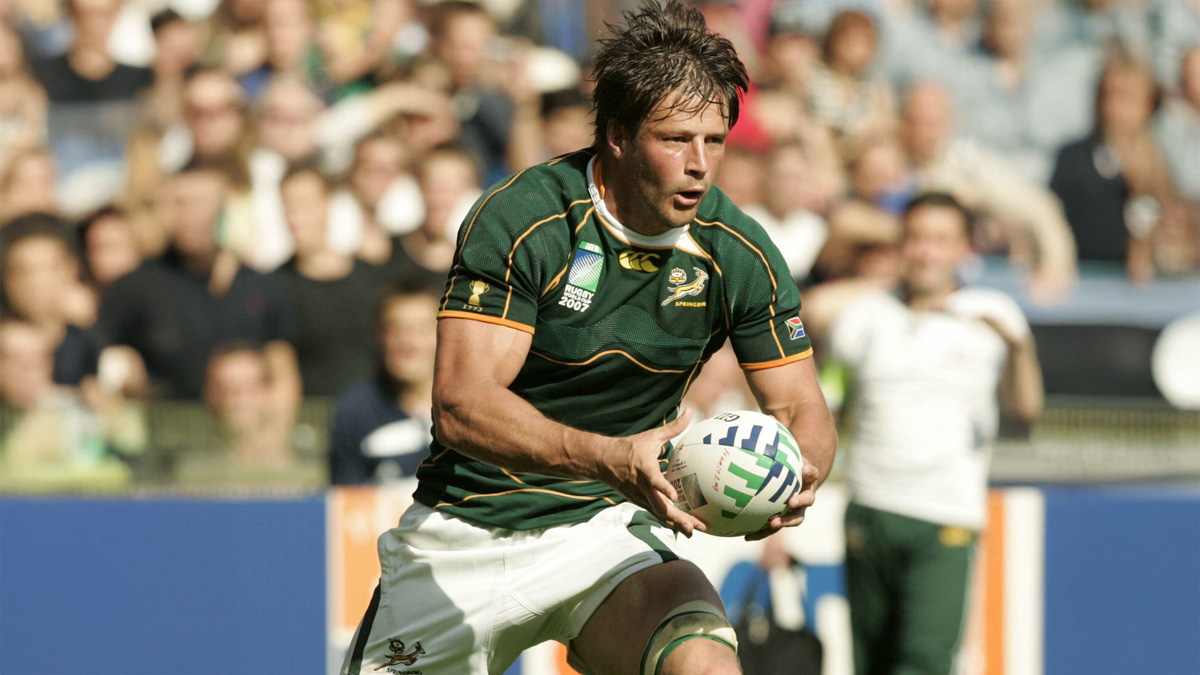“The most unlikely of people in the most improbable of circumstances can still become extraordinary.” This is the phrase John Amaechi’s mother used to say. It’s etched into his psyche and guided him throughout his life – and it’s at the heart of his philosophy on leadership.
John Amaechi is an organisational psychologist, best-selling author and a professor of leadership at the University of Exeter Business School. The message in his latest book, It's Not Magic: The ordinary skills of exceptional leaders, is refreshingly simple. In a world where leadership is often overcomplicated, leadership is a set of learnable behaviours and any of us, no matter how unlikely, can master them.
Amaechi’s journey began far from the lecture halls and boardrooms he now inhabits. Raised in Stockport in Greater Manchester, he describes his childhood as “not always so positive”. It was marked by anxiety, bullying and the fear of losing his mother, who battled cancer multiple times before she died.
“I was an anxious child, a worried child. I was very concerned about the gravity of the world,” he reflects. However, at that time, psychology wasn’t even an A-level subject. The idea of becoming a psychologist seemed “absurd”. Yet those early experiences now inform everything he teaches about leadership and human potential.
A pivotal moment in Amaechi’s life happened at the age of 17, when a stranger stopped him in the street and said that he looked like he could be great at basketball. Despite never having played the game before, he gave it a go.
Six years later, he was playing in the NBA for the Cleveland Cavaliers, becoming the first Briton to play in the league. His career spanned just over a decade and concluded with winning a bronze medal representing England at the 2006 Commonwealth Games.
He founded his consultancy, now known as APS Intelligence, in 2008, for a surprising reason: ego. After spending a few years as an in-house coach for large organisations, he found himself collecting powerful insights that could transform leadership and culture if they were shared more widely. However, there was only so much he could do himself.
“I realised, if I wanted to influence lots of organisations for the better, I needed scalable help,” he says. “I needed an organisation that can help facilitate. Even working with one large organisation, sometimes the bureaucracy of it can mean you spend more of your time negotiating communications with people than actually doing the job. So having people around me who do that often very difficult work is essential.”
The company has morphed and evolved over time and Amaechi stands proudly by its tagline of “we want to help people thrive at work and workplaces succeed with thriving people”. But he was faced head-on with his own limitations during this journey of scaling APS Intelligence.
“I’m a bad CEO,” says Amaechi. However, he views this open acknowledgement in a light that many do not. “It’s not good for my ambition. This is what I want to achieve, the shining city, that’s what I want. But the person who’s going to lead us there is not me. I’m still in a strategic role and I’m deeply involved but there’s somebody else who's better at day-to-day operations and who’s better at making sure that the organisation is growing at the pace it needs to.
“Sometimes, as ambitious people, we think that if we’re bad at something, we should work to be better at it. I believe that’s not always the case. Some things we’re bad at, and it’s a bad use of our time to get good at. Not being the CEO has released me to do lots of other stuff creatively, to think of interventions and to read a little more widely than I was able to do.”
He challenges leaders to consider the following, especially if you own your company or are a large shareholder within it: are you in the right place for it to get to where you want it to go? “It's only a selfish person to me that says, ‘I'm going to stay CEO because that title is more important to me than our collective ambition’,” he says.
A related challenge comes when your thinking is challenged. Amaechi shares an example from a talk about emotional literacy that he gave at the University of Lancashire in Preston. Afterwards, someone pointed out that the theory that formed the basis of his talk had been surpassed by a new one.
“I had two choices in that moment,” he recalls. “Say, ‘screw all of you people for daring to confront me with this’ or I could say, ‘how exciting it is to find myself in an environment where people can refine me so that I am less wrong’. Every day, there's an opportunity for me to be less wrong. I love it.”
So when you are challenged by someone within your organisation, Amaechi encourages leaders to keep one thing in mind: do you want to win?
“Stop letting your emotions get in the way of winning. Either you want to be the kind of person who says, ‘Can somebody please tell me if there are any holes in this idea?’ or not. Do you want to win or do you want to be right right now? That's always the question for leaders. Anybody who picks the latter is the smallest and often, in the context of the workplace, is the most despicable.”
Reflecting on his work with organisations day-to-day, Amaechi has an analogy for one of the common issues he’s noticed. If you go to the doctor with a rash on your arm, you can certainly get a cream to treat it. But if the issue comes from clothing or another skin irritant, the cream will be a temporary fix.
“People come to us telling us what they want to fix, but what they want to fix is a symptom,” he says. “What we’re interested in is looking past the symptoms, recognising their importance and their discomfort, but looking closer into what’s causing it.”
For example, a company that is growing too fast may have employees churning out of the business, experiencing poor performance or burnout. However, the main problem is a lack of structure within the organisation to handle that scale.
For all his insight and expertise, Amaechi insists that leadership isn’t magic. It’s not a rare gift reserved for a chosen few. It’s a set of deliberate, learnable behaviours, such as humility, self-awareness, curiosity and discipline, that are practised consistently over time. This is the inspiration behind his latest literary offering.
In a world obsessed with quick fixes and silver bullets, that might sound disappointingly simple. But as Amaechi reminds us, the most extraordinary results often come from the most ordinary tools applied with care, courage and humanity.
John Amaechi’s book, It's Not Magic: The ordinary skills of exceptional leaders, is out now. For more interviews, subscribe to the Business Leader YouTube channel here.
Related and recommended

Years of decline have hollowed out London’s listing market, but founders, banks and ministers are quietly pushing for a revival

Healthcare and income tax require radical reform, but the Budget revealed little ambition to tackle the big issues

Bob Skinstad’s journey from rugby prodigy to business leader is shaped by scrutiny, setbacks and second chances

After a decade as editor-in-chief, Katharine Viner is using her business acumen to reinvent The Guardian

